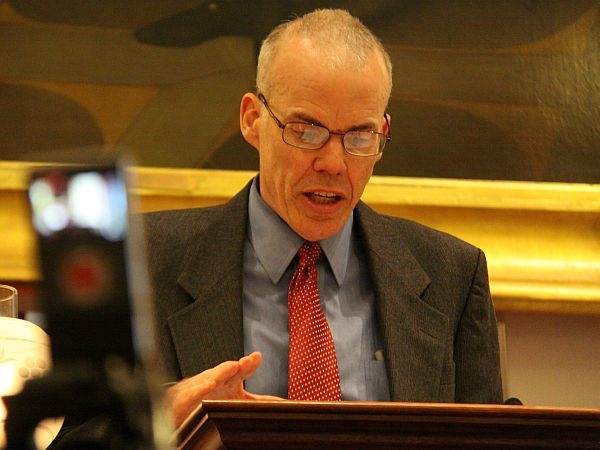
For the first time this legislative session, the full Vermont Senate will debate renewable energy on Tuesday. In Montpelier, though, some lawmakers’ hopes of passing meaningful climate change legislation that might reduce greenhouse gas emissions have already collided with the state’s fiscal reality.
Last week, a thermal efficiency bill passed the Vermont House, 109-27. It was originally designed to help Vermonters weatherize their homes and businesses. It would have cost millions of dollars.
Rep. Margaret Cheney, D- Norwich, sponsored House bill 520, but the version that passed overwhelmingly was stripped down from the original plan.
Speaking on the House floor, Cheney warned her colleagues that the state’s homes and buildings are leaking heat and creating "a thirst for oil" that is "emptying our wallets and contributing to climate change."
"We are spending twice as much to heat our homes today as we did 10 years ago," Cheney said. "By taking on this challenge we can slow down climate change, save Vermonters money and create jobs in the building industry."
But with no new money to pay for weatherization, Cheney and other lawmakers, instead, recommended that the state replace its fleet of cars with electric models. It was one sign of how lawmakers have scaled back their expectations to do something to address climate change in the months since environmentalist Bill McKibben addressed the Legislature at the beginning of the session.
"The biggest pitfall that we face is doing nothing because if we do nothing then the cost is so extraordinary that we’ll never be able to afford it," McKibben said back in January, urging lawmakers to block a pipeline in northern Vermont from carrying tar sands oil. Senators are moving toward adopting a version of that advice. There’s also a bill that would study divesting the state from fossil fuels.
But expanding the state’s ability to better insulate homes and improve their heating is not on the list.
A task force found that $27 million would be needed in the first year to meet the state’s statutory goals for weatherizing 80,000 homes in Vermont by 2020. The task force said energy efficiency measures would save more than $1 billion and nearly 7 million tons of carbon emissions would be eliminated.
"Unfortunately the emergency crisis fuel oil supply has run dry," Gov. Peter Shumlin said earlier this month, explaining the dire situation facing many Vermonters. He argued that prioritizing weatherization could save state money.
"It’s clear that going forward Congress is going to continue to cut or certainly not increase our fuel assistance for our most needy," Shumlin said.
However, the bill the House passed last week seeks no additional state spending.